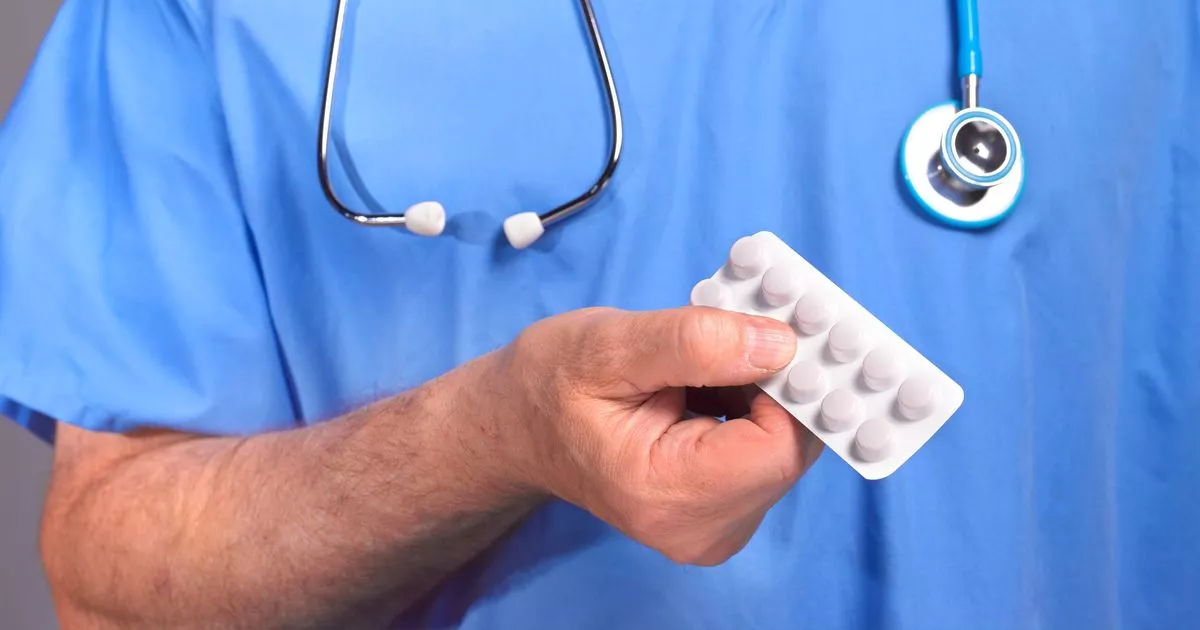The NHS has a cautionary note to people who are taking the commonly prescribed medication
Charlotte Smith Senior Lifestyle Content Editor
12:46, 09 Oct 2025Updated 12:56, 09 Oct 2025
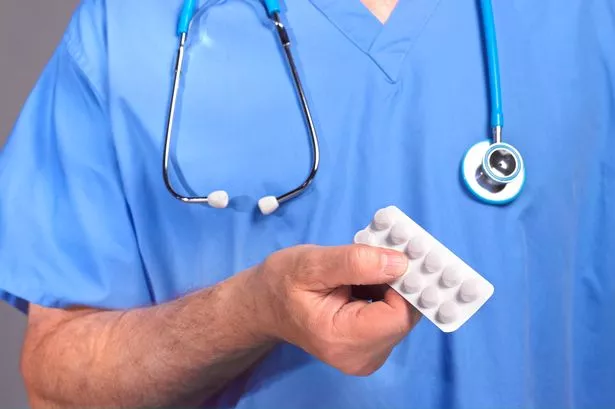 Having large amounts of the fruit and its juice can make side effects worse(Image: Getty )
Having large amounts of the fruit and its juice can make side effects worse(Image: Getty )
The NHS has issued a cautionary note on its website for those taking a common medication for high blood pressure. Also known as hypertension, this medical condition affects approximately one in three adults across the UK, and many may be unaware they have it.
Given that high blood pressure increases the risk of stroke, heart disease, and kidney problems, early treatment is crucial, and thankfully, antihypertensive medications can help. As of 2025, amlodipine (a calcium channel blocker) and ramipril (an ACE inhibitor) are among the most commonly prescribed antihypertensive drugs in the UK.
On its own, amlodipine accounts for over 30 million prescriptions annually. This medication is often taken long-term or even for life, typically prescribed when a patient cannot naturally lower their blood pressure through a healthy diet and lifestyle, or if the medication is needed due to other factors, such as genetics.
Taking amlodipine can help prevent future heart disease, heart attacks, and strokes. It’s also used to alleviate chest pain from heart disease (angina), reports the Mirror. Amlodipine works on high blood pressure by relaxing and widening your blood vessels, reducing your blood pressure and making it easier for your heart to pump blood around your body.
Patients suffering from angina commonly endure chest pain due to the arteries supplying the heart becoming rigid and constricted. Amlodipine works by improving blood and oxygen delivery to the heart muscle. It is only available on prescription and comes as tablets or liquid for swallowing.
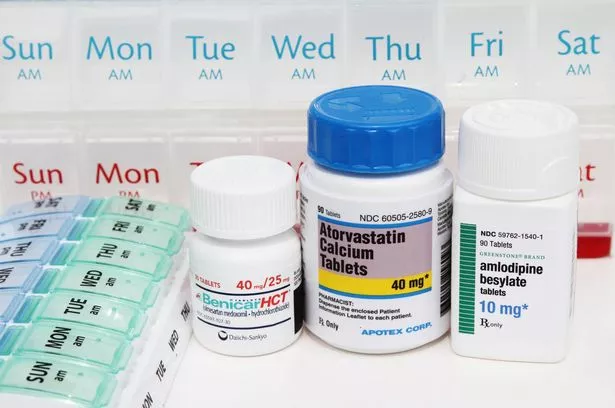 Like all medicines, amlodipine can cause side effects, although not everyone gets them.How should people take amlodipine?
Like all medicines, amlodipine can cause side effects, although not everyone gets them.How should people take amlodipine?
The NHS says that amlodipine is usually administered once per day. Patients may select any time that suits them, though maintaining consistency with timing is recommended. Both tablet and liquid forms can be consumed with or without meals.
Tablets should be swallowed whole, accompanied by water, and liquids also require water. For those who prefer, tablets may be dissolved in water, though the entire solution must be consumed immediately.
What does the NHS warn against?
Patients must avoid consuming a certain fruit and its juice while on this treatment. NHS guidance online states: “Do not take amlodipine with grapefruit juice. Having large amounts of grapefruit or grapefruit juice can increase how much amlodipine is in your body and make side effects worse. If you are affected, you may have to avoid eating grapefruit or drinking grapefruit juice while taking amlodipine.
“Having large amounts of grapefruit or grapefruit juice can increase the concentration of amlodipine in your body and make side effects worse. If you are affected, you may have to avoid eating grapefruit or drinking grapefruit juice while taking amlodipine.
“Tell your doctor if you have any increased side effects, such as feeling dizzy, flushing or getting headaches, after eating grapefruit or drinking grapefruit juice. Otherwise, you can eat and drink normally while taking amlodipine.”
 The medicine is only available on prescriptionWhy might grapefruit and its juice cause issues?
The medicine is only available on prescriptionWhy might grapefruit and its juice cause issues?
Amlodipine and grapefruit should not be mixed. Grapefruit contains substances that inhibit the CYP3A4 enzyme in your liver and intestines, which is responsible for breaking down amlodipine.
If the medication isn’t properly broken down due to the blocking of the CYP3A4 enzyme, more amlodipine remains in your system instead of being processed. This could lead to higher levels of amlodipine in your blood, enhancing its effects and increasing the likelihood of severe side effects like dangerously low blood pressure, dizziness, and fainting.
If you’re taking amlodipine, it’s best to avoid grapefruit and grapefruit juice. Don’t hesitate to discuss with your doctor or pharmacist if you have any queries about how food or drinks might interact with your medication.
Grapefruits, including red, pink, white, and Blanco varieties, are the primary fruit to avoid when taking amlodipine. Seville oranges (often found in orange marmalade), pomelos, and tangelos (a cross between tangerines and grapefruits) may have similar effects, so it’s recommended to steer clear of these fruits while taking amlodipine.
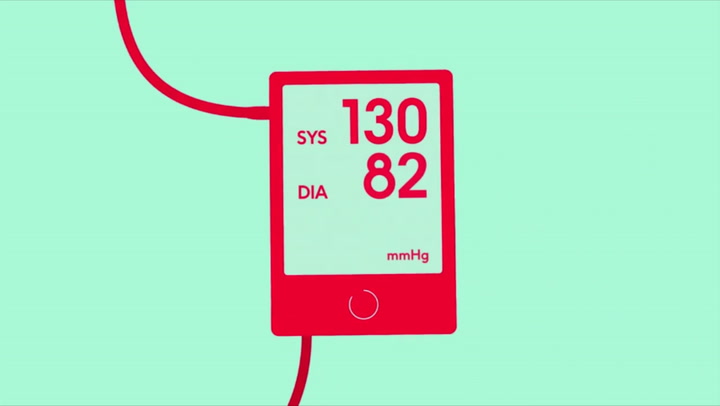 Blood pressure explained by the British Heart FoundationHow long should you continue taking amlodipine?
Blood pressure explained by the British Heart FoundationHow long should you continue taking amlodipine?
The NHS advises: “Usually, treatment with amlodipine is long-term, even for the rest of your life. Talk to your doctor if you want to stop taking amlodipine. Stopping may cause your blood pressure to rise, and this may increase your risk of heart attack and stroke.”
If side effects are causing concern, your doctor may be able to prescribe an alternative medication. The health service importantly notes to patients: “Take amlodipine even if you feel well, as you’ll still be getting the benefits of the medicine.”
What are the side effects of amlodipine?
These common side effects of amlodipine occur in more than 1 in 100 people. They’re usually mild and short-lived. There are measures you can take to manage them.
Headaches: Rest and hydrate adequately. Avoid excessive alcohol consumption. Consult your pharmacist for a suitable painkiller. Headaches should typically subside after the first week of taking amlodipine. If they persist longer than a week or are severe, consult your doctor.
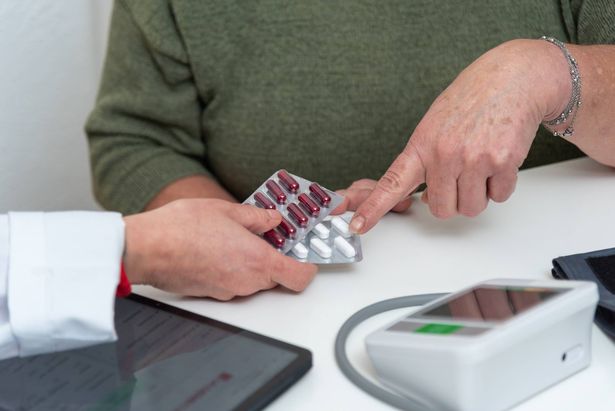 Amlodipine is a calcium channel blocker used to treat high blood pressure
Amlodipine is a calcium channel blocker used to treat high blood pressure
Feeling dizzy: If amlodipine induces dizziness, cease what you’re doing and sit or lie down until you feel better. Refrain from driving, cycling or operating tools or machinery until the dizziness subsides.
Flushing: Consider reducing your intake of coffee, tea and alcohol. It might also be beneficial to keep the room cool and utilise a fan. You could also consider spritzing your face with cool water or sipping on cold or iced beverages. This side effect should subside after a few days. If it persists or is causing you distress, get in touch with your doctor.
A pounding heartbeat: If this occurs regularly post-taking your medication, try to consume amlodipine when you’re able to sit down (or lie down) during the peak of the symptoms. It may be helpful to cut back on alcohol, smoking, caffeine, and large meals, as these can exacerbate the issue.
Consult your doctor if you have a history of heart disease and the palpitations persist for an extended period, worsen, or do not improve, or if you are concerned.
Swollen ankles: Elevate your legs whilst seated. Speak to your doctor or pharmacist if the advice on coping doesn’t help and the side effects are bothersome or last more than a few days.
Does amlodipine affect other medicines?
The NHS says: “If you take other medicines that lower blood pressure, such as ramipril or lisinopril, at the same time as amlodipine, the combination can sometimes lower your blood pressure too much. When your blood pressure is low, you may feel dizzy or faint. If this keeps happening to you, tell your doctor, as your dose may need to be changed. Some medicines can affect the way amlodipine works.”
Tell your doctor if you’re taking any of these medicines before starting amlodipine:
- antibiotics such as clarithromycin, erythromycin or rifampicin
- calcium channel blockers like diltiazem or verapamil
- itraconazole or ketoconazole, antifungal medicines
- medicines to treat HIV or HCV (hepatitis C virus)
- anti-epilepsy medicines such as carbamazepine, phenytoin, phenobarbital (phenobarbitone) or primidone
- medicines to suppress your immune system, such as ciclosporin or tacrolimus
- more than 20mg a day of the cholesterol-lowering medicine simvastatin
How to enhance your heart’s health?
Following key lifestyle modifications can improve your heart’s health. These steps will also assist if you suffer from high blood pressure or angina:
- Quit smoking
- Cut down on alcohol
- Exercise
- Eat well
- Deal with stress
If you have heart failure, you should receive the flu jab annually and the pneumococcal vaccine as recommended by your GP. Enquire with your doctor about these vaccinations. They are available free of charge on the NHS.
It’s recommended that most people receive the covid-19 vaccination. Ensure you’ve had all the doses for which you’re eligible. If you believe you may belong to one of the at-risk groups, it’s advisable to consult with your doctor.
